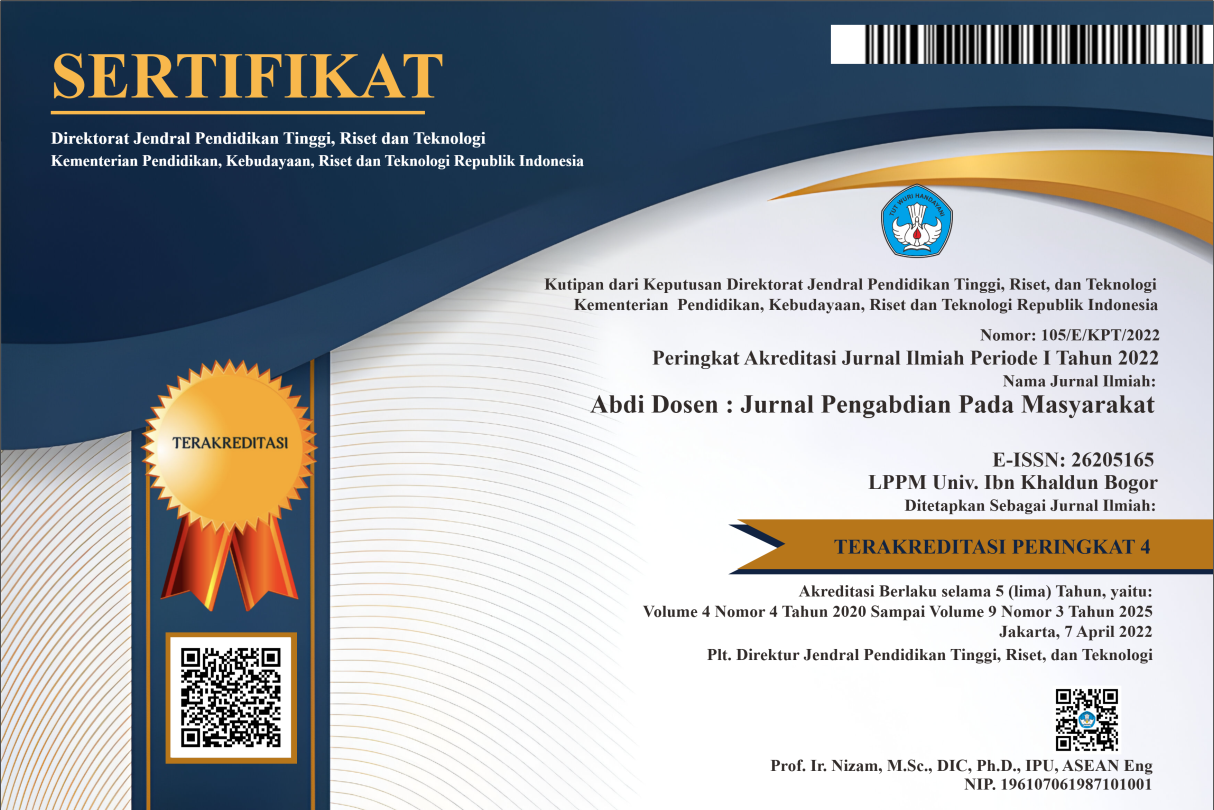ANALYSIS OF INTERNATIONAL TRADE IN SUPPORTING INDONESIA’S ECONOMIC STABILITY
Abstrak
This study aims to analyze the role of international trade in supporting Indonesia’s economic stability using the Vector Autoregression (VAR) model. The variables used in the study include exports, imports, exchange rate, trade balance, and Gross Domestic Product (GDP) over the period 2007 to 2024. Data were obtained from the World Bank and the Central Bureau of Statistics (BPS). The stationarity test results show that all variables are stationary at different levels. The optimal lag was determined at lag 2 based on the Akaike and Schwarz criteria. The Johansen cointegration test results indicate the existence of a long-term relationship among the variables, while the stability test shows that the model meets the stability requirements. The results of the VAR analysis, Impulse Response Function (IRF), and Forecast Error Variance Decomposition (FEVD) reveal that exports and imports have the greatest contribution in influencing other macroeconomic variables. The response of the variables to external shocks is dynamic yet stable in the medium term. Exports have a positive impact on economic growth, while imports play a strategic role in meeting domestic needs. The trade balance is influenced by the movement of exports and imports and serves as an important indicator for measuring external stability. Thus, international trade is proven to have a significant impact on Indonesia’s economic stability, making it necessary to implement responsive policies such as market diversification, increasing the competitiveness of domestic products, and selective import management to ensure the sustainability of national economic growth.
##submission.copyrightStatement##
##submission.license.cc.by-nc4.footer##





















